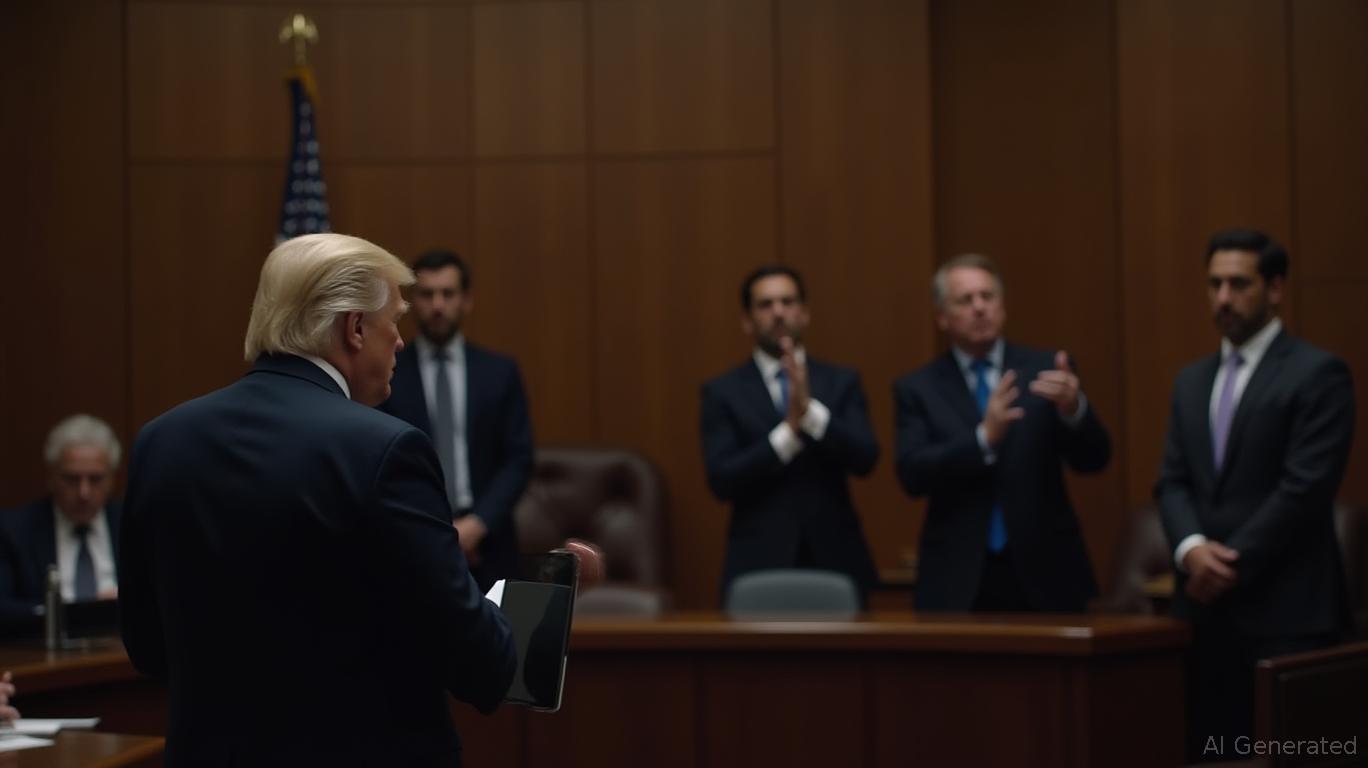Trump’s Crypto Clemency: A Bold Move for Progress or a Moral Dilemma?
- Trump's 2025 pardon of Binance CEO CZ sparked debate over crypto ethics and U.S. regulatory leadership amid global competition. - The move faced criticism for alleged conflicts, including CZ's $2B investment in Trump-linked crypto ventures and prior regulatory violations. - Critics called it "pay for play," while supporters argued it boosted crypto innovation, citing a 15% post-pardon investment surge in U.S. firms. - Democrats demanded investigations as political tensions rose, with Trump framing the pa
The highly debated pardon of Binance founder Changpeng Zhao, also known as CZ, by President Donald Trump has sparked a nationwide discussion about ethics, regulatory oversight, and the direction of the U.S. cryptocurrency industry. Announced in October 2025, this move was part of Trump's larger agenda to establish the United States as a frontrunner in digital assets, a field he compared to artificial intelligence in terms of strategic value.

During a rare
The pardon has faced strong backlash from Democratic lawmakers and ethics watchdogs. Senator Elizabeth Warren condemned the action as a "disgraceful misuse of authority," arguing in
Those in favor of the pardon, such as the Blockchain Association and Coin Center, claim the decision encourages progress by easing regulatory ambiguity. The association reported that U.S. crypto companies experienced a 15% increase in investments following the pardon, reflecting renewed optimism in the industry, according to Coinotag. The Trump administration presented the pardon as a key part of its plan to compete globally, especially against China, which has imposed stricter crypto controls. "America must lead in crypto," Trump declared, highlighting his sons' involvement in digital assets as evidence of the sector's promise.
The political repercussions are still mounting. White House Press Secretary Karoline Leavitt stated the pardon followed a "comprehensive review," while Democratic leaders have demanded congressional probes into possible conflicts of interest. At the same time, the Trump Organization has insisted it played no part in the pardon, as noted by The Independent.
As the digital currency landscape shifts, this pardon highlights the complex relationship between technology, international relations, and presidential authority. With new legislative debates on crypto regulation approaching, this decision may shape how future leaders weigh innovation against responsibility.
Disclaimer: The content of this article solely reflects the author's opinion and does not represent the platform in any capacity. This article is not intended to serve as a reference for making investment decisions.
You may also like
DeProp Introduces Real Yield DAO Model as $DXBRE Crypto Presale Reaches 43% of $3.25M Target
DeProp's $DXBRE presale reaches 43% of its $3.25M target, offering fractional ownership in Dubai real estate with real yield opportunities.DeProp’s Innovative Real Estate Investment ModelMarket Opportunity for InvestorsCurrent Crypto Presale Progress RevealedA Self-Sustaining Ecosystem for Long-Term GrowthConclusion: Why You Should Consider Joining the Crypto Presale

Solana Spot ETFs See $199M Weekly Inflows
Solana spot ETFs attract $199 million in net inflows last week, signaling growing institutional interest.Solana ETFs Attract Nearly $200M in Weekly InflowsWhy Institutions Are Betting on SolanaWhat This Means for Solana’s Future

Strategy Firm Adds 397 BTC, Now Holds Over 641K
A strategy firm buys 397 BTC worth $45.6M, boosting its total holdings to 641,205 BTC.Another Big Bitcoin Buy: 397 BTC AddedA Long-Term Accumulation StrategyWhy This Matters for the Market

Crypto Taxes: Ignoring Them Could Cost You Big
Not reporting crypto taxes? Regulators are watching. Non-compliance can lead to audits, fines, or criminal charges.Crypto Taxes Are No Longer OptionalHow Regulators Are Tracking YouThe Risk of Ignoring Crypto Taxes
